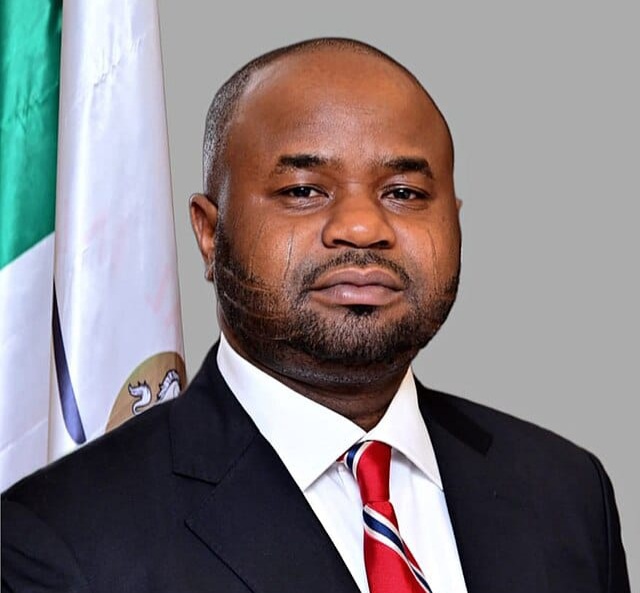At a time when Nigeria urgently needs to boost revenue and rebuild fiscal resilience, government officials and global experts have warned that the country’s development prospects will remain stunted unless illicit financial flows (IFFs) are decisively tackled.
Speaking at the national conference on “Combating Illicit Financial Flows: Strengthening Nigeria’s Domestic Resource Mobilisation” in Abuja, Minister of State for Finance Doris Uzoka-Anite, Chairman of the Federal Inland Revenue Service, Zacch Adedeji and a member of the Mbeki High Level Panel on IFFs, Irene Ovonji-Odida, delivered a sobering but action-oriented assessment of the challenge.
Adedeji described IFFs as more than just financial misconduct. He called them a structural drain on Nigeria’s economy, highlighting how tax evasion, profit shifting, money laundering, and trade misinvoicing deprive the country of the resources needed for inclusive development. He warned that every unaccounted dollar translates into lost infrastructure, inadequate public services, and deepening inequality.
The minister said illicit financial flows are not just drain pipes to the nation’s commonwealth, they are a national problem, development problem and a national security concern.
“This is to align policy, enforcement and institutional efforts across the board. At the Ministry of Finance, we are fully committed to a multi-agency, multi-stakeholder approach in tackling PBC financial flows,” Dr Uzoka-Anite stated at the national conference on illicit financial flows with the theme “Combating Financial Flows: Strengthening Nigeria’s Domestic Resource Mobilisation” holding in Abuja.
Ovonji-Odida in her keynote address placed Nigeria’s challenge within a broader international context. She pointed out that despite Africa’s vast natural and human resources, the continent loses approximately $194 billion every year through illicit financial flows. These include profits shifted to tax havens by multinational corporations, false trade invoicing, and illicit transactions by politically exposed persons. She emphasised that the persistent drain of wealth from Africa is sustained by an unequal global financial system shaped by the interests of developed nations.
According to her, Africa must strategically engage in the ongoing United Nations negotiations for a Tax Framework Convention, which aims to rebalance international tax governance.
She described the negotiations as a once-in-a-century opportunity for developing countries to secure a fair allocation of taxing rights, reduce dependence on foreign aid, and finance their own development priorities.
Adedeji, on his part, spoke about the concrete steps Nigeria is taking under President Bola Ahmed Tinubu’s Renewed Hope Agenda. He pointed to the recent signing of four tax reform bills on June 26, 2025, as a sign of strong political commitment to overhaul the tax system, modernise the legal framework, and institutionalise transparency in revenue collection.
The FIRS, he said, is responding with a multidimensional strategy. It is promoting voluntary tax compliance by simplifying systems and educating taxpayers to build a culture of trust. At the same time, it is undertaking a digital transformation to improve tax enforcement. This includes the launch of a new Tax Intelligence and Automation Department, equipped with real-time data analytics, anomaly detection, and integrated third-party data systems, designed to create a proactive and secure tax regime.
He noted that enforcement must be intelligence-led and globally coordinated, as illicit actors constantly evolve. He explained that the FIRS has taken the lead in this effort by establishing the Proceeds of Crime Management and Illicit Financial Flows Coordination Directorate under the Proceeds of Crime Act (2022). This unit is supporting asset recovery and working closely with law enforcement, the judiciary, private sector actors, and international development partners to track and prevent illicit financial activity.
Another key reform highlighted by Adedeji is the review of Nigeria’s existing Double Taxation Agreements (DTAs), many of which have become outdated and are being exploited for profit shifting. He revealed that Nigeria has initiated renegotiations with several jurisdictions to bring these agreements in line with present-day economic realities and close legal loopholes that enable capital flight.
Ovonji-Odida emphasized that while national reforms are critical, they must be reinforced by international cooperation. She urged Nigeria to strengthen its engagement in global tax negotiations through the African Union and United Nations. She also stressed the importance of South-South collaboration in building a unified position to counterbalance the dominance of Western-led financial institutions.
Both speakers agreed that the stakes are high. As African countries face mounting debt burdens—Nigeria included—the loss of billions through IFFs undermines public investment in key sectors like health, education, infrastructure, and job creation. Ovonji-Odida noted that 21 African countries are already at risk of debt distress, with Africa’s total debt rising to 644.9 billion dollars and accounting for nearly a quarter of the continent’s combined GDP.
Adedeji concluded with a clear call to action, saying the time for half-measures was over. He urged that the conference be remembered not just for dialogue but for initiating real change—through stronger enforcement, inter-agency collaboration, and political resolve.
He reaffirmed FIRS’s commitment to lead with purpose, act as a catalyst for reform, convene collaborative efforts, and protect Nigeria’s fiscal sovereignty. He commended the efforts of the Proceeds of Crime Management and IFF Directorate for their leadership and dedication, and expressed confidence that Nigeria could build a fairer, more resilient economy through unified effort.
Ovonji-Odida echoed that sentiment, calling this a defining moment for Nigeria and Africa as a whole. She stressed that the global economic order is shifting, and unless developing countries seize the moment, they risk being locked into another century of inequality.
“This is not just about economics—it’s about sovereignty, justice, and the future of our children,” she said.











